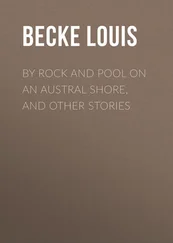Люциус Шепард - Eternity and Other Stories
Здесь есть возможность читать онлайн «Люциус Шепард - Eternity and Other Stories» весь текст электронной книги совершенно бесплатно (целиком полную версию без сокращений). В некоторых случаях можно слушать аудио, скачать через торрент в формате fb2 и присутствует краткое содержание. Город: New York, Год выпуска: 2005, ISBN: 2005, Издательство: Thunder's Mouth Press, Жанр: Фантастика и фэнтези, prose_magic, на английском языке. Описание произведения, (предисловие) а так же отзывы посетителей доступны на портале библиотеки ЛибКат.
- Название:Eternity and Other Stories
- Автор:
- Издательство:Thunder's Mouth Press
- Жанр:
- Год:2005
- Город:New York
- ISBN:978-1-560-25662-5
- Рейтинг книги:5 / 5. Голосов: 1
-
Избранное:Добавить в избранное
- Отзывы:
-
Ваша оценка:
- 100
- 1
- 2
- 3
- 4
- 5
Eternity and Other Stories: краткое содержание, описание и аннотация
Предлагаем к чтению аннотацию, описание, краткое содержание или предисловие (зависит от того, что написал сам автор книги «Eternity and Other Stories»). Если вы не нашли необходимую информацию о книге — напишите в комментариях, мы постараемся отыскать её.
“Lucius Shepard’s stories a jungles — densely alive, sometimes mysterious, often gorgeous, and always dangerous.” — Katerine Dunn, author of Geek Love
Eternity and Other Stories — читать онлайн бесплатно полную книгу (весь текст) целиком
Ниже представлен текст книги, разбитый по страницам. Система сохранения места последней прочитанной страницы, позволяет с удобством читать онлайн бесплатно книгу «Eternity and Other Stories», без необходимости каждый раз заново искать на чём Вы остановились. Поставьте закладку, и сможете в любой момент перейти на страницу, на которой закончили чтение.
Интервал:
Закладка:
The gray van that transported me from Vacaville seemed representative of the gray strangeness that I believed awaited me, and I constructed the mental image of a secret labyrinthine vastness, a Kafkaville of brick and steel, a partially subterranean complex like the supermax in Florence, Colorado where Timothy McVeigh, Carlos Escobar, and John Gotti had been held, but as we crested a hill on a blue highway south of Mount Shasta, a road that wound through a forest of old-growth spruce and fir, I caught sight of a sprawling granite structure saddling the ridge ahead, looking ominously medieval with its guard turrets and age-blackened stone and high, rough-hewn walls. My mental image of the prison morphed into more Gothic lines—I pictured dungeons, archaic torments, and a massive warden with a bald head the size of a bucket, filed teeth, and a zero tattooed on his brow.
The road angled to the left, and I saw an annex jutting from one side of the prison, a windowless construction almost as high as the main walls, also of weathered granite, that followed the slope of the ridge downward, its nether reach hidden by the forest. We passed in among the ranked trees, over a rattling bridge and along the banks of a fast flowing river whose waters ran a mineral green through the calm stretches, cold and clouded as poison in a trough, then foamed and seethed over thumblike boulders. Soon the entrance to the annex became visible on the opposite shore: iron doors enclosed by a granite arch and guarded by grandfather firs. The van pulled up, the rear door swung open. When it became apparent that the driver did not intend to stir himself, I climbed out and stood on the bank, gazing toward my future. The ancient stones of the annex were such a bleak corruption of the natural, they seemed to presage an imponderable darkness within, like a gate that when opened would prove the threshold of a gloomy Druid enchantment, and this, in conjunction with the solitude and the deafening rush of the river, made me feel daunted and small. The engine of the van kicked over, and the amplified voice of the driver, a mystery behind smoked windows, issued from a speaker atop the roof, “You have ten minutes to cross the river!” Then the van rolled away, gathering speed, and was gone.
At Vacaville I had been handcuffed but not shackled, not the normal procedure, and left alone now, I had the urge to run; but I was certain that invisible weapons were trained on me and thought this must be a test or the initial stage in a psychological harrowing designed to reduce me to a Ristelli-like condition. Cautiously, I stepped onto a flat stone just out from the bank, the first of about forty such stones that together formed a perilous footbridge, and began the crossing. Several times, besieged by a surge of water, a damp gust of wind, I slipped and nearly fell—to this day I do not know if anyone would have come to my rescue. Teetering and wobbling, fighting for balance, to a casual observer I would have presented the image of a convict making a desperate break for freedom. Eventually, my legs trembling from the effort, I reached the shore and walked up the shingle toward the annex. The building terminated, as I’ve said, in an arch of pitted stone, its curve as simple as that of a sewer tunnel, and chiseled upon it was not, as might have been expected, ABANDON HOPE ALL YE WHO ENTER HERE or some equally dispiriting legend, but a single word that seemed in context even more threatening: WELCOME. The iron doors were dappled with orange patches of corrosion, the separate plates stitched by rows of large rivets whose heads had the shape of nine-pointed stars. There was no sign of a knocker, a bell, or any alarm I might engage in order to announce myself. Once again I gave thought to running, but before I could act on the impulse, the doors swung silently inward, and, moved less by will than by the gravity of the dimness beyond, I stepped inside.
My first impression of Diamond Bar was of a quiet so deep and impacted, I imagined that a shout, such as I was tempted to vent, would have the value of a whisper. The light had a dull golden cast and a grainy quality, as if mixed in with particles of gloom, and the smell, while it plainly was that of a cleaning agent, did not have the astringency of an industrial cleaner. The most curious thing, however, was that there were no administrative personnel, no guards, no term of processing and orientation. Rather than being kept in isolation until it was determined to which block or unit I would be assigned, on passing through the annex door I entered the population of the prison like a pilgrim into a temple hall. The corridor ran straight, broken every fifty yards or so by a short stairway, and was lined with tiers of cells, old-fashioned cribs with sliding gates and steel bars, most of them unoccupied, and in those that were occupied, men sat reading, wall-gazing, watching television. None of them displayed other than a casual interest in me, this a far cry from the gauntlet of stares and taunts I had run when I entered the population at Vacaville. Absent the customary rites of passage, undirected, I kept going forward, thinking that I would sooner or later encounter an official who would inscribe my name or open a computer file or in some other fashion notate my arrival. As I ascended the fourth stairway, I glimpsed a man wearing what looked to be a guard’s cap and uniform standing at parade rest on the tier above. I stopped, expecting him to hail me, but his eyes passed over me, and without saying a word, he ambled away.
By the time I reached the sixth stairway, I estimated that I had walked approximately two-thirds the length of the annex, climbed two-thirds the height of the hill atop which the walls of the prison rested; and though I held out hope that there I might find some semblance of authority, I decided to ask for assistance and approached a lanky, pot-bellied man with a pinkish dome of a scalp that caused his head to resemble a lightly worn pencil eraser, an illusion assisted by his tiny eyes and otherwise negligible features. He was sitting in a cell to the right of the stairs, wearing—as was everyone within view—gray trousers and a shirt to match. He glanced up as I came near, scowled at me, and set down the notebook in which he had been writing. The gate to his cell was halfway open, and I took a stand well back from it, anticipating that his mood might escalate.
“Hey, brother,” I said. “What’s up with this place? Nobody signs you in and shit?”
The man studied me a moment, screwed the cap onto his pen. On the backs of his fingers were faint inky tracings, the ghosts of old tattoos. The precision of his movements conveyed a degree of snippishness, but when he spoke his voice was calm, free of attitude. “’Fraid I can’t help you,” he said.
I would have been on familiar ground if he had responded with a curse, a warning, or the fawning, fraudulent enthusiasm that would signal his perception of me as a mark, but this politely formal response met none of my expectations. “I’m not asking you to get involved, man. I just need to know where to go. I don’t want to get my nuts busted for making a wrong turn.”
The man’s eyes fitted themselves to the wall of the cell; he seemed to be composing himself, as if I were an irritant whose presence he felt challenged to overcome. “Go wherever you want,” he said. “Eventually you’ll find something that suits you.”
“Asshole!” I clanged my handcuffs against the bars. “Fuck you think you’re talking to? I’m not some fucking fish!”
His face tightened, but he kept on staring at the wall. The interior of the cell had been painted a yellowish cream, and the wall was marred by discolorations and spots from which the paint had flaked away that altogether bore a slight resemblance to a line of trees rising from a pale ground. After a few seconds he appeared to become lost in contemplation of it. Some of the men in other cells on the ground tier had turned our way, yet none ventured to their doors, and I sensed no general animosity. I was accustomed to prisons filled with men on the lookout for breaks in the routine, any kind of action to color the monotony, and the abnormal silence and passivity of these men both intimidated and infuriated me. I took a circular stroll about the corridor, addressing the occupants of the cells with a sweeping stare, hating their mild, incurious faces, and said in a voice loud enough for all to hear, “What’re you, a bunch of pussies? Where the hell I’m supposed to go!”
Читать дальшеИнтервал:
Закладка:
Похожие книги на «Eternity and Other Stories»
Представляем Вашему вниманию похожие книги на «Eternity and Other Stories» списком для выбора. Мы отобрали схожую по названию и смыслу литературу в надежде предоставить читателям больше вариантов отыскать новые, интересные, ещё непрочитанные произведения.
Обсуждение, отзывы о книге «Eternity and Other Stories» и просто собственные мнения читателей. Оставьте ваши комментарии, напишите, что Вы думаете о произведении, его смысле или главных героях. Укажите что конкретно понравилось, а что нет, и почему Вы так считаете.












